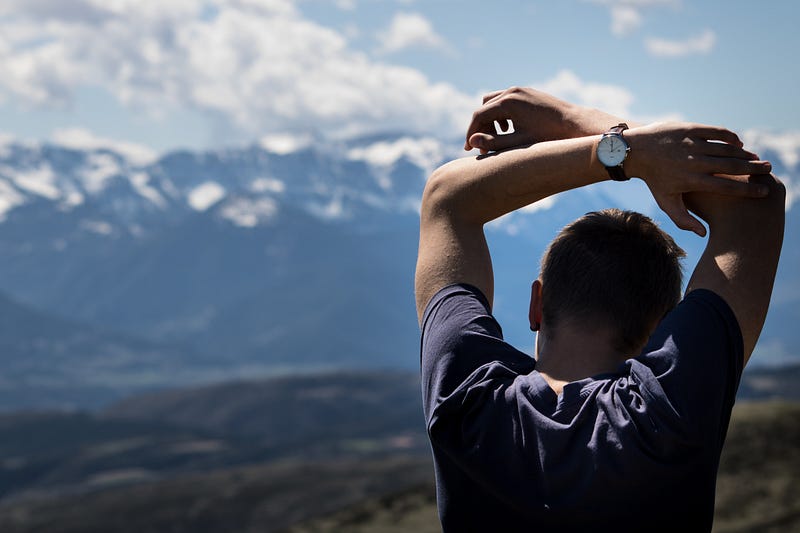Honour Your Emotions
“As soon as you trust yourself, you will know how to live.” — Johann Wolfgang von Goethe”
To develop trust in oneself, we should stop seeking the opinions of others and recognise the guidance within us.
Self-trust is harnessed when we follow our inherent wisdom, instead of looking outside to find inner peace. We develop self-trust by honouring our emotions instead of hiding behind them. Equally, we must distance ourselves from those who undermine our self-trust. Some people are prone to push our pain buttons because it pleases them to see us suffer. Whilst they can help us identify our disowned parts, we are better off avoiding them instead of becoming embroiled in their deceitful ways. Can you identify with this? Have you met people like this?
Self-trust is harnessed when we nurture our innermost thoughts. Whilst we cannot control external circumstances, we become curious to what is going on inside of us instead of retaliating in anger. I’m drawn to the message by psychotherapist John Prendergast Ph.D. who explains in In Touch: How To Tune In To The Inner Guidance Of Your Body And Trust Yourself that we must look to our body’s wisdom to develop self-trust: “As we learn to recognize and understand the body’s subtle sensations, and then act on them, our self-trust will grow tremendously. To me it is rather amazing that the body has this innate sense of the truth as if the body is hardwired for it.” The subtleties of the human body point to what is going on beneath the surface, so we become attuned to the minor fluctuations and our true needs.
We must honour our commitment to ourselves whether through the goals we set or pursuing our dreams. To dishonour them, diminishes our self-trust because we fail to follow through on our plans. To foster self-trust involves developing a compassionate dialogue with ourselves as opposed to being ruled by the drama in our lives. We do this by planting the seed of equanimity and nurture it with kindness so it grows strong. Does this idea appeal to you? Can you see how being kind to yourself creates a sense of inner harmony?
Self-trust arises when we make time to honour the child within us. This means devoting time to be with ourselves, instead of declaring how busy we are, amid craving emotional compassion. Our inner authority is the pillar of a stable emotional life. Strength of character does not mean stowing away our pain, it involves meeting it with openness and compassion.
For example, how do you know when you need time alone? Whenever you notice internal unrest, this is a call to spend time in silence to examine your emotions. It is no surprise our lives are hectic. We are more likely to pay attention to outside events instead of meeting our personal needs. We spend much of our waking life fixed on the world “out there” instead of within. Yet, if we continue down this path, we neglect our inner life, which influences how we relate to the world.

Become Aware And Awake
“Because one believes in oneself, one doesn’t try to convince others. Because one is content with oneself, one doesn’t need others’ approval. Because one accepts oneself, the whole world accepts him or her.”― Lao Tzu
A practice I outline in my book, Reconstructing the Past to Create a Remarkable Future involves a simple question to ask ourselves often: “How am I doing?” This simple question allows us to discern what is going on inside us, instead of dismissing the emotional disturbances as unjustified.
The German-born spiritual teacher Eckhart Tolle states that whenever emotional chaos is apparent, we are inviting an earlier Pain-Body experience into the present moment. This is obvious when others trigger our Pain-Body, such as being cut off in traffic or someone taking our line in the queue whilst shopping. Have you experienced this, when for no apparent reason your mood turns sour and you can’t quite put your finger on it?
If we don’t take the time to examine what is going on beneath the surface, we are likely to react instead of interact with our core emotions. Building self-trust does not mean we will always say or do the right thing. Irrespective of our words and actions, whatever arises is there to guide our personal evolution.
A well-known exercise for developing self-trust is to be mindful of the sensations in our body before reacting to external events. So, if someone takes our place in the shopping queue, before we react, we move our attention into our body and note any tension or tightness. We become curious toward these sensations and observe them nonjudgmentally. Is this something you can relate to and put into practice in your own life?
So, we might be aware of a constricting sensation in our chest moments before retaliating in anger with the person who jumped the queue. We learn to be with the emotion and notice it without an agenda by repeating the phrase: “I’m aware of you” or as Daniel Goleman suggests, we label the emotion. This simple act puts the brakes on deferring our emotions and draws our awareness to what is going on inside us.
In this way we become aware and awake, instead of unconscious to the emotional drivers in our life. We develop self-trust by honouring facets of our being irrespective of whether we approve or disapprove of that part of us.
Those with a diminished self-esteem tend to criticise themselves for reacting angrily to a situation. In contrast, those with a strong self-esteem see it as a teaching point from which to grow. To develop self-trust is to listen to our heart’s guidance, instead of being dictated by incessant thoughts. Our thoughts are saboteurs since they cannot be trusted. Given their volatility, we cannot always rely on them to make sense of our situation.
For instance, at the end of a working day your thoughts are likely to be more scattered, while mid-morning after a cup of coffee they’re less likely to be reactive. However, the heart is not influenced by unsettled moods. There is a stillness that longs for us to connect with it, even during our darkest hour.
Practice moving your awareness into your heart in the midst of the commotion and observe the silence. Be with the sensations that arise and meet them with openness. You’ll soon realise the habitual and stressful thoughts begin to melt away, leaving a sea of expansiveness that permeates your mind and body.
Self-trust is an invitation to develop a relationship with our core self and become our own best friend. We appreciate the interplay between our thoughts and emotions, instead of remaining unconscious to them. In doing so, we learn to trust the guidance from our deepest wisdom and build greater trust in ourselves.
Originally published at Medium

